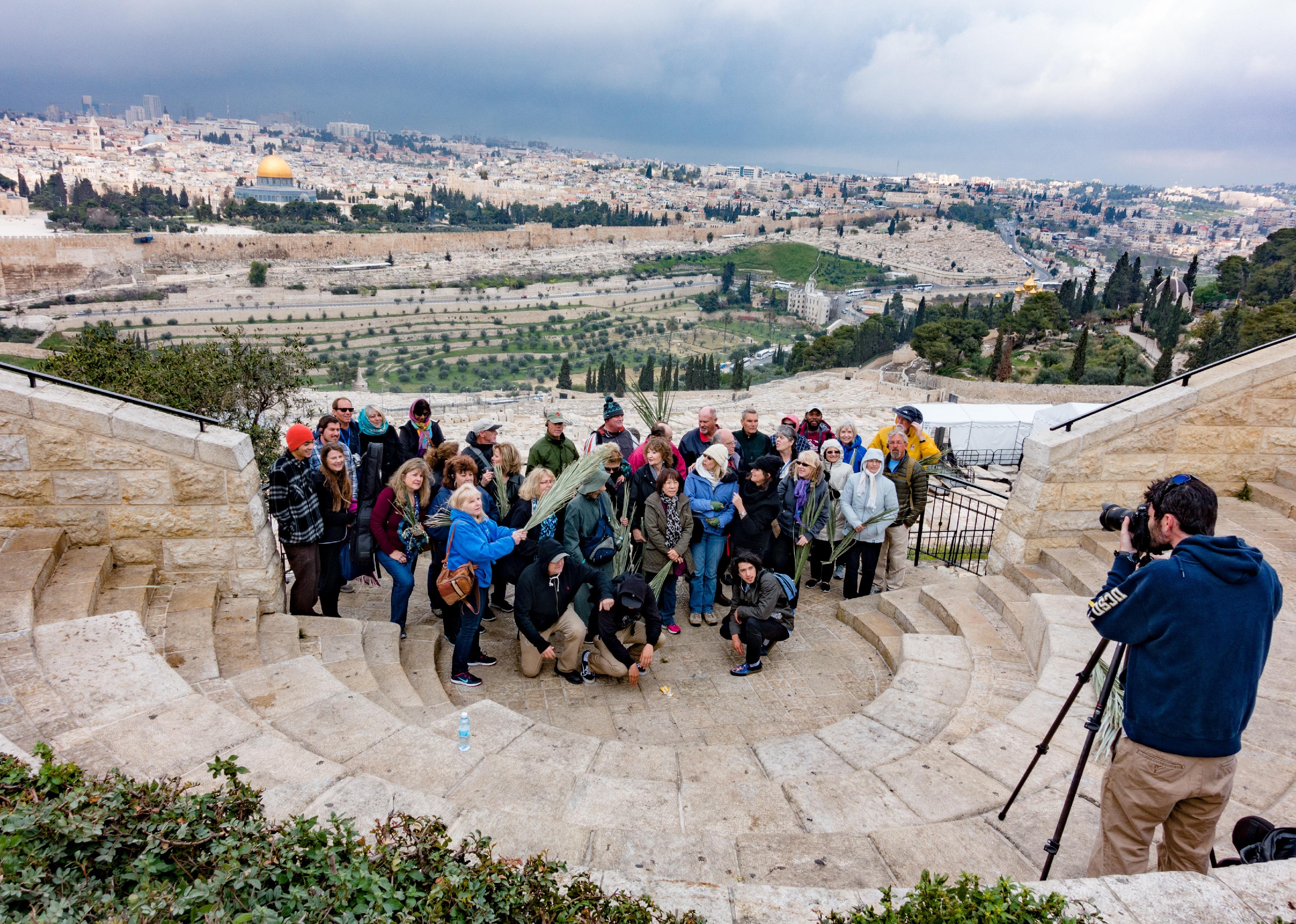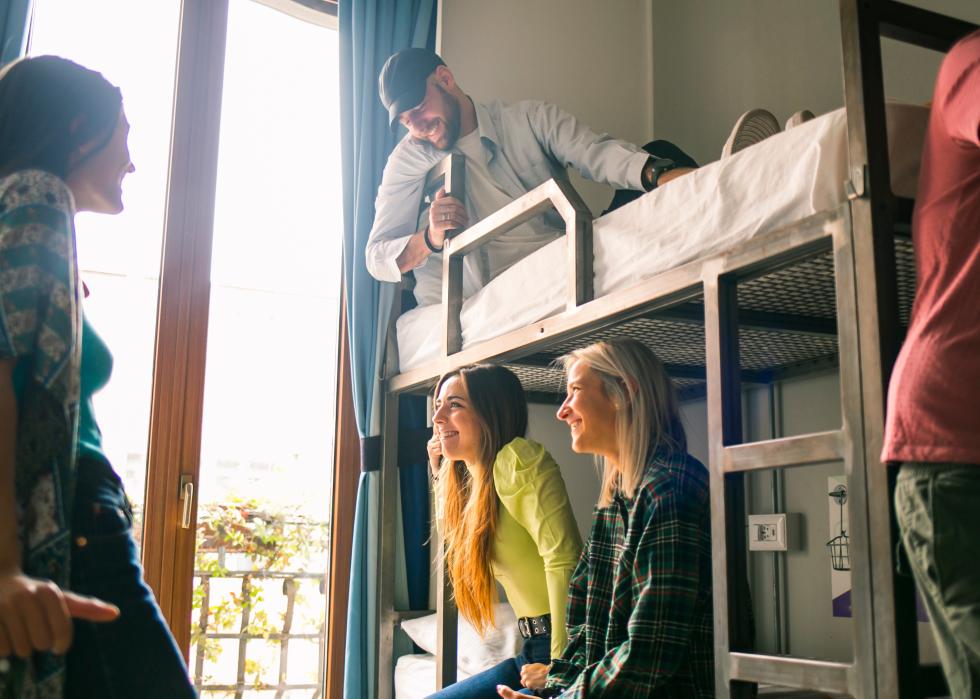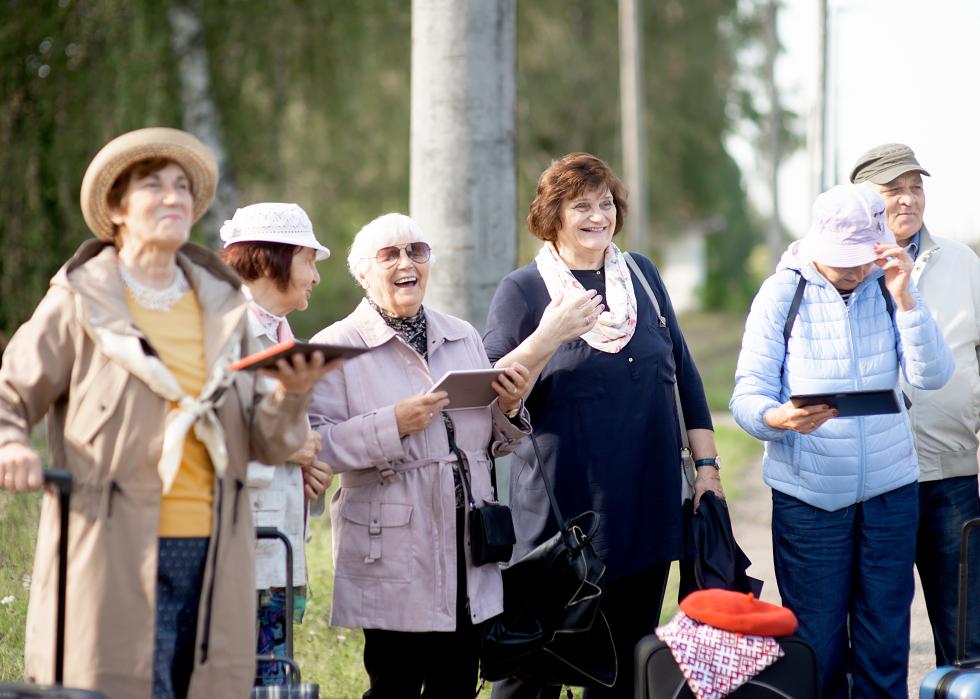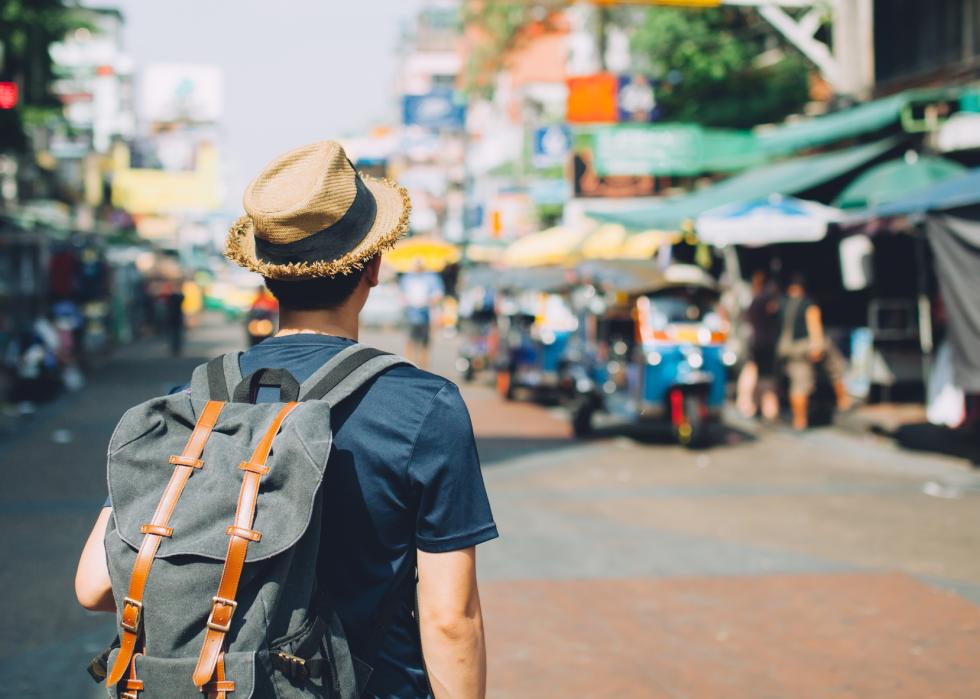
This story originally appeared on Bounce and was produced and distributed in partnership with Stacker Studio.
10 tips for traveling with a large group
Traveling with a large group can be wonderful. Bigger numbers mean more people to do things with, more memories to be made, and more folks to split expenses between. But without careful planning, group trips can also be miserable. There's nothing worse than misaligned expectations, budgets, and disagreements about the adventure ahead.
Bounce has assembled a list of first-rate tips for big-group travel in order to ensure the best group trip possible. Whether you're planning a long-awaited family reunion, a coworker offsite, or an adventure with friends, these tips are sure to make your trip go off without a hitch.
Of course, before you take off, or get too far into your planning, be sure to check the CDC for guidance on travel during the ongoing COVID-19 pandemic. The first step to a successful getaway is making sure everyone in your squad is safe and in adherence to current regulations.

Assign a group leader
Establishing a group leader or two should be one of the first steps when group traveling. These leaders aren't in charge of making every decision about the trip, but rather they are responsible for coordinating most aspects of travel: assigning tasks—like making dinner reservations or booking off-site adventures, disseminating information throughout the group, and booking tour guides or event tickets.
This will help make sure everyone going on the trip is aware of all dates and activities, on board with the plans, and conscious of how much everything will cost. Good leaders help maintain healthy social dynamics and assure no one feels out of the loop or uncomfortable with any proposed plans.

Plan in advance
Once you've established a group leader, get everyone together for a general planning meeting. Use this time to pick dates that align with everyone's work, family, and life schedules, identify a general destination, and come up with a broad framework for your vacation itinerary.
Now is the perfect time to decide things like whether you're all after a more active trip or a more relaxed getaway, if you want to stay in an all-inclusive resort or check out home shares, etc. Don't worry about the smaller details, like where to have dinner every night or what airline to fly, just yet—there will be plenty of time for those decisions down the line.

Establish budget preferences
One specific thing your group should discuss in a planning meeting is the budget. It's likely everyone will have different ideas about how much they're able or willing to spend, and getting on the same page about finances early on is a key part of a successful group trip.
During this time, ask everyone about what they aren't willing to pay for—like alcohol or fancy dinners out—and the things they are willing to pay for—maybe private airport transfers or admission to cultural sites. Knowing where every member of your party stands on these issues can help you hammer out more detailed itineraries or even multiple itineraries for different subsets of the group. Arguably there are few instances more awkward than on-the-spot fights about splitting a dinner bill or staying behind on an excursion.

Document itineraries and preferences
Most group trips can often take weeks for everything—from flights to restaurant reservations—to get pinned down. While in the planning phases of travel, keeping everyone in the loop on itineraries and any new information will smooth out the trip overall.
Curating lists and itineraries on platforms like Google Docs or shared iPhone notes can help keep the party up to date. Dropping links for everything from the hotel to that one off-site day trip you're going to take—as well as notes about price, reservation time, etc.—ensures that everyone knows exactly what's being planned and can raise questions and concerns beforehand. And of course, group chats on platforms like WhatsApp can facilitate discussions.

Check for group discounts
Many airlines, hotels, ground transportation companies, and tours offer group discounts to larger parties. As you're booking the various pieces of your trip, be sure to inquire about the possibility of a deal. Worst-case scenario, the company will tell you no, and best-case scenario, you'll be able to save a few of your hard-earned coins. This tip is particularly important for groups looking to travel on a budget or groups dealing with a huge budget disparity among their members.

Create a routine
Before you go on the trip, consider establishing a routine for the members of the group. We're not talking about a hard and fast schedule broken down into 15-minute increments, but rather a general plan of how you want the days to go.
How long do you want to spend at each event? An hour at breakfast for example, or two hours at the pool each morning. Most importantly, what time should the group be awake by each day? Keeping the broad strokes of each day the same will help everyone feel calmer and in more control over their time away.

Consider homestays or group lodging
While hotels and all-inclusive resorts tend to be the first type of accommodations thought of when planning vacations, consider a homestay or group lodging instead. Unless you're after a very specific experience or destination, staying in a rented house or group of houses might be a better option. These properties are often more affordable and spacious.
Additionally, they offer more opportunities for cooking meals together or spending downtime as a group. After all, if you've chosen these specific people to go away with, you likely want to be with them as much as possible.

Avoid too many activities in one day
While spending time together is likely your top concern on a group trip, be conscious of how you plan to spend said time. Scheduling too many activities in a single day can leave people feeling tired and stressed, which can cause them to act irritable and anxious. And likely the last thing you want is to be stuck far from home with a group of cranky folks.
Limiting the number of activities you do in a day allows everyone to slow down and enjoy the moment rather than mentally rushing ahead to the next thing. Being less ambitious with planning also helps conserve energy for building happy memories rather than expending it all too early and burning out.

Play to each person's social strengths
In any group of friends, coworkers, and family members, there are likely a variety of social and mental strengths. There might be one person who is exceptional with directions, another who's good at math and can always calculate the tip accurately, and a third whose outgoing nature makes it easy to ask strangers questions.
Whatever the strengths in your travel group, allow them to shine while you're away together. Giving everyone different jobs keeps any one person feeling overburdened and discourages anyone from turning into a control freak.

Plan some time for solo exploration
Make sure you leave some time for solo exploration. Even if your group is in agreement about almost every aspect of the trip, there will always be at least one activity not everyone wants to do—and that's natural.
Scheduling time where everyone can head off and do their own thing increases the likelihood of each member of your group leaving the trip feeling happy, fulfilled, and satisfied. And as a bonus, you'll have a wealth of interesting stuff to talk about when you all reunite at the end of the day.



